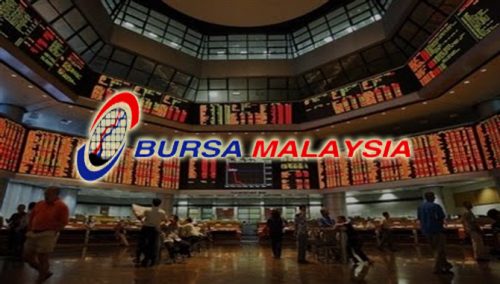- Malaysia and Singapore to Set Up Stock Market Trading Link
- Dow Jones Plunges in Largest Single Day Loss
- MaGIC Global Accelerator Programme open for applications
- Boston Scientific Corporation Opens Regional Manufacturing Hub in Malaysia
- South Korea’s tech boom to spur on growth

Malaysia and Singapore to Set Up Stock Market Trading Link
The Securities Commission Malaysia (SC) and the Monetary Authority of Singapore (MAS) will work together to facilitate the establishment of a stock market trading link between Bursa Malaysia (BM) and the Singapore Exchange (SGX) by the end of this year. The trading link will allow investors to trade and settle shares listed on each other’s stock market in a more convenient and cost efficient manner. Retail investors notably will benefit from such a link. This initiative follows from the ongoing efforts of the ASEAN Capital Markets Forum (ACMF) to deepen financial connectivity across the region’s capital markets. The bilateral link between BM and SGX will extend beyond trading to cover post-trade arrangements like the clearing and settlement of the stocks traded. In relation to this strategic initiative, MAS and SC will set up cross-border supervisory and enforcement arrangements, and work together with the two exchanges to operationalise the link.
Wall Street plunges as Dow erases 2018’s gains
Wall Street stocks endured a brutal session on Monday, with the Dow seeing one of its steepest ever one-day point drops. The Dow Jones Industrial Average tumbled 4.6 per cent or 1,175.21 points to 24,345.75, having at one point plummeted nearly 1,600 points to hit a session low of 23,923.88. The broad-based S&P 500 dropped 113.19 points (4.1 per cent) to 2,648.49, while the tech-rich Nasdaq Composite Index fell 273.42 points (3.78 per cent) to 6,967.53. The White House said that President Donald Trump was focused on the long-term health of the economy, saying the fundamentals were “exceptionally strong,” despite a strong market sell-off. Wall Street stocks have been on shaky ground for the last week amid concerns over elevated Treasury bond yields and the likelihood of additional Federal Reserve interest rate hikes this year as the US economy strengthens.
MaGIC Global Accelerator Programme open for applications
The Malaysian Global Innovation & Creativity Centre (MaGIC)’s Global Accelerator Programme has started accepting applications, and the portal will remain open until March 26. This year, for its second batch of participants, the Global Accelerator Programme (GAP) will help equip selected global startups with the necessary skills, knowledge, and network to break into ASEAN and become investment-ready in four months. The programme provides four months of mentoring; direct access to route-to-market partners such as Google, Malaysia Airlines, Maxis, Maybank, Media Prima and others; accommodation and flight reimbursements; marketing allowance and monthly stipend; six months professional visitor pass; and benefits worth over US$500,000 from Amazon Web Services, 123RF, Canva, GRAB, ipay88 and many more. Last year GAP was ranked as one of the top ten most active accelerators in the world. It was also recognised as the “Best Accelerator Programme” by ASEAN Rice Bowl Startup Awards and Malaysia Rice Bowl Startup Awards in 2017. In the coming month GAP will also be travelling to 14 cities to share more insights into the programme and how it will help startups scale their business in ASEAN.
Boston Scientific Corporation Opens Regional Manufacturing Hub in Malaysia
Boston Scientific Corporation has opened a regional manufacturing hub at the Batu Kawan Industrial Park in Penang. The state-of-the-art facility is part of the company’s investment in Asia and supports plans to grow the company’s global manufacturing footprint to address increasing patient needs. As part of the global supply network for Boston Scientific, products made in Penang will be exported to key growth markets in Asia. “Malaysia is a growing hub for medical devices,” said Warren Wang, Senior Vice President and President, Asia Pacific, Boston Scientific. “With global healthcare spending projected to increase at an annual rate of 4.1% until 2021, we see great potential in the healthcare industry within the Asia Pacific region and are committed to contributing to its growth. Our facility in Malaysia will allow us to better serve the needs of physicians and patients in the region as Boston Scientific will have direct access to the local healthcare ecosystem.”
South Korea’s tech boom to spur on growth, DHL trade data suggests
South Korea’s high-tech industry — a powerhouse of both innovation and export production — will add fire to the country’s trade growth in the coming quarter, according to analysis from the Global Trade Barometer released by DHL, the world’s leading logistics company. The first ever Global Trade Barometer, an early indicator of global trade developments calculated using Artificial Intelligence, Big Data and predictive analytics predicts that South Korea’s high-tech industry will continue to underpin the nation’s trade growth, even as it experiences a slight slowdown in volume compared to the end of last year. South Korea manufactures nearly 20% of the world’s semiconductor market and more than 60% of the world’s memory chips, both of which experienced extreme growth in the past 12 months. Much of that trade growth is expected to manifest in higher ocean freight volumes, driven especially by imports of basic raw materials needed to sustain South Korea’s high-tech manufacturing as well as an ambitious pace of infrastructural investment. The Barometer’s index value for basic raw materials jumped more than 25 points between December 2017 and January 2018 — one of the largest such increases for any sector in any of the seven countries included in the indicator’s scope. Developed jointly by DHL and Accenture, the Global Trade Barometer provides a quarterly outlook on future trade, taking into consideration the import and export data of seven large economies: China, South Korea, Germany, India, Japan, the United Kingdom, and the United States. Together, these countries account for 75 percent of world trade, making their aggregated data an effective bellwether for near-term predictions on global trade.
























